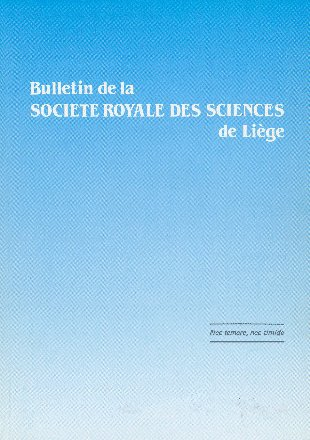- Accueil
- Volume 93 - Année 2024
- No 2 - Proceeedings of the 3rd BINA Workshop on th...
- Evolution and Final Fates of a Rotating 25M⊙ Pop III Star
depuis le 05 février 2011 :
Visualisation(s): 395 (8 ULiège)
Téléchargement(s): 23 (0 ULiège)
Amar
Aryan, Shashi Bhushan
Pandey, Rahul
Gupta, Sugriva Nath
Tiwari & Amit Kumar
Ror Evolution and Final Fates of a Rotating 25M⊙ Pop III Star
(Volume 93 - Année 2024 — No 2 - Proceeedings of the 3rd BINA Workshop on the Scientific Potential of the Indo-Belgian Cooperation)
Article
Abstract
In this manuscript, we present the one-dimensional stellar evolution of two rotating population III (Pop III) star models, each having a mass of 25M⊙ at the zero-age main-sequence (ZAMS). The slowly rotating model has an initial angular rotational velocity of 10% of the critical angular rotational velocity. In contrast, the rapidly rotating model has an initial angular rotational velocity of 70% of the critical angular rotational velocity. As an effect of rotationally enhanced mixing, we find that the rapidly rotating model suffers an enormous mass loss due to the deposition of a significant amount of CNO elements toward the surface after the main-sequence phase. We also display the simulated light curves as these models explode into core-collapse supernovae (CCSNe).
Keywords : Population III stars, Stellar evolution, Hydrodynamic simulation, Supernovae
Pour citer cet article
Amar Aryan, Shashi Bhushan Pandey, Rahul Gupta, Sugriva Nath Tiwari & Amit Kumar Ror, «Evolution and Final Fates of a Rotating 25M⊙ Pop III Star», Bulletin de la Société Royale des Sciences de Liège [En ligne], Volume 93 - Année 2024, No 2 - Proceeedings of the 3rd BINA Workshop on the Scientific Potential of the Indo-Belgian Cooperation, 700-708 URL : https://popups.uliege.be/0037-9565/index.php?id=11843.
Aryabhatta Research Institute of observational sciencES (ARIES), Nainital, Uttarakhand, India-263001 and Department of Physics, Deen Dayal Upadhyaya Gorakhpur University, Gorakhpur, Uttar Pradesh, India-273009. Corresponding author: amararyan941@gmail.com and amar@aries.res.in
Aryabhatta Research Institute of observational sciencES (ARIES), Nainital, Uttarakhand, India-263001
Aryabhatta Research Institute of observational sciencES (ARIES), Nainital, Uttarakhand, India-263001 and Department of Physics, Deen Dayal Upadhyaya Gorakhpur University, Gorakhpur, Uttar Pradesh, India-273009
Department of Physics, Deen Dayal Upadhyaya Gorakhpur University, Gorakhpur, Uttar Pradesh, India-273009
Aryabhatta Research Institute of observational sciencES (ARIES), Nainital, Uttarakhand, India-263001







